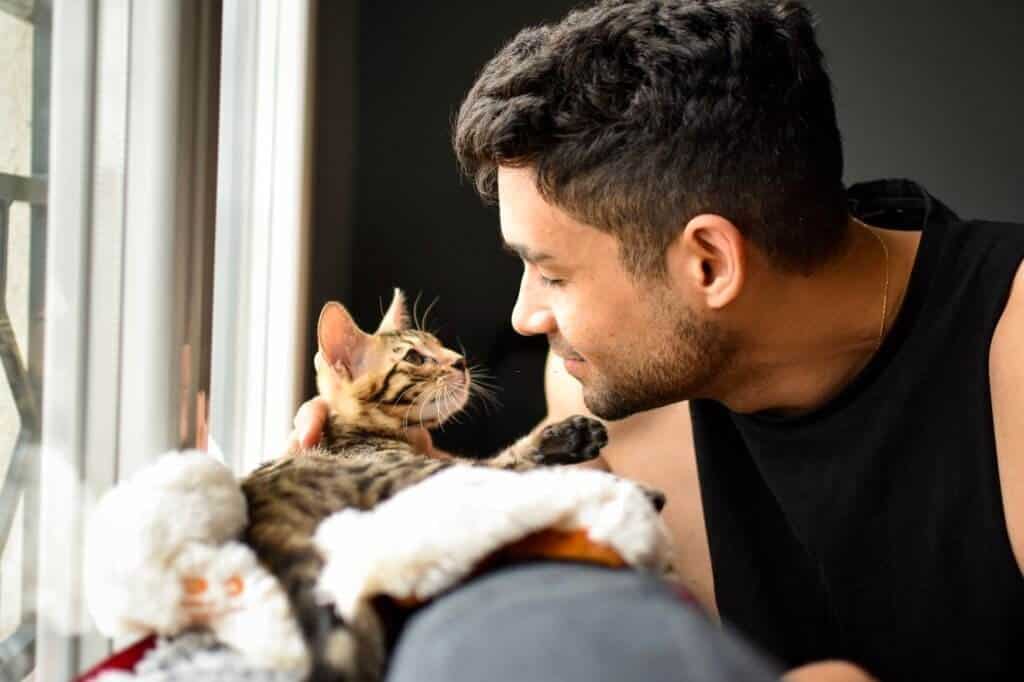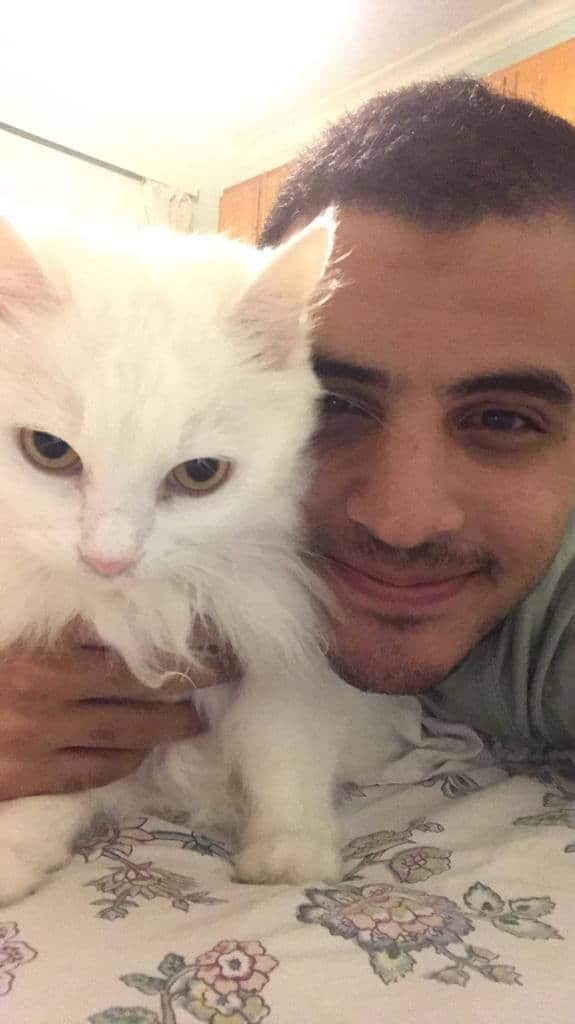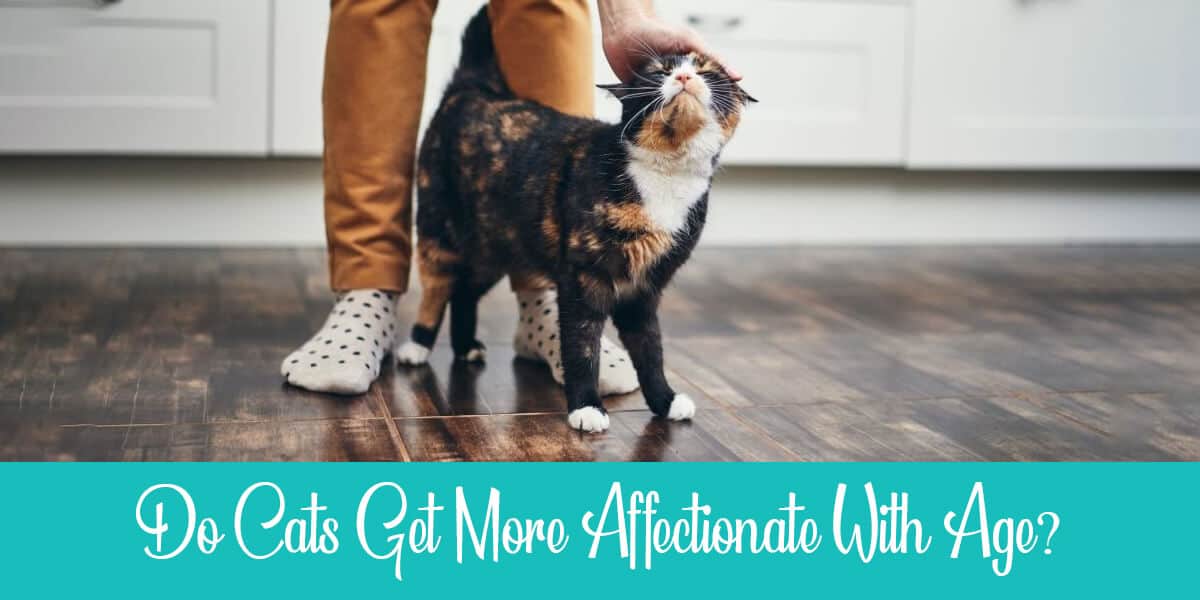Every cat lover knows these little felines are aloof and prefer to be independent. It’s almost like the eighth wonder of the world when a cat voluntarily decides to crawl onto your lap but is it that impossible for a cat to get affectionate with age? Here’s all you need to know!
Table of Contents
Do Cats Get More Affectionate With Age?
It’s not impossible; cats are more affectionate than people think. Some cats may take time to warm up to you if it’s a new environment for them. Others have a more playful personality and don’t like to be a lap cat at first. Still, it’s likely with age that they’ll get more affectionate and comfortable with you.
How Do I Pick An Affectionate Kitten?
You simply can’t. Kittens are like humans in the sense that they have the ‘stranger danger‘ concept. They won’t immediately soften and put their guard down, so you need to earn their love and trust first.
When Will My Cat Warm Up To Me?
Kittens are very curious beings; chances are they’ll spend the first few months playing and sneaking around, discovering and familiarizing themselves with the place. How long it’ll take depends on each cat as they’re all different, but usually a few weeks to a year.
There are ways you can help your kitten to warm up to you faster, such as:
- Match their playfulness; run around, make them chase after you or a string/toys.
- Make time for them. Form a habit of playing with them every day for at least 30 minutes to an hour.
- Take care of their mealtimes, don’t be late! And add new foods from time to time.
- Groom them well and clean their litterbox regularly.
- Be soft and calm with your voice and actions. They’re not called scaredy cats for no reason.
- Find them a safe and cozy place to hide and sleep.
Must Read: Why is my cat biting and kicking her kittens?
Don’t Force A Bond
Cats, by nature, are very dominant animals; they want to take the lead, which means you can’t force the cat to sit, play or cuddle with you. You have to let it take the reigns, and unlike dogs, cats don’t do bribes. If you let them be, they’ll come to you naturally because it was their choice, not yours.
Are Female Cats More Affectionate Than Male Cats?

Surprisingly, no. Contrary to popular belief, female cats are more playful than male cats. Male cats are more on the lazy side; eat, sleep, cuddle, repeat. This characteristic makes them more likely to be affectionate than female cats.
Cat lovers will tell you that male cats usually get more clingy and needy after getting neutered. The reason for that being they become way less territorial, and the aggression they may have previously felt is now gone.
They will also have less energy because, after all, it’s a tough surgery and could take a toll on the male cat physically and mentally, so you may find them crawling into your lap more often.
However, gender isn’t really a factor in cats’ behaviors. It could just depend on the environment they grew up in as well as which breed they are. Some breeds are more affectionate than others, e.g., ragdolls, Siamese, and Persian cats are known to be the most affectionate.
Do All Cats Grow To Be Affectionate?
Sadly, not really. Some cats may never turn into lap cats and will always prefer to have their own space and be lone wolves.
But don’t lose hope! Just because your cat doesn’t crawl into your lap doesn’t mean it hates you. Cats have their own very subtle ways of showing their love to their owners.
How To Spot Your Cat’s Subtle Hints of Affection:
- Purring. A cat may not be on your lap but being around you, playing with you, being fed by you can make it start purring, and that’s a sign that it’s happy.
- Rubbing their heads against you.
- Following you around.
- Sitting on your laptop, book, etc. to get your attention.
- Lying on their backs and showing you their belly is a huge sign that a cat is happy to see as well as loves and trusts you.
- Meowing. Some people take that as a negative thing, but cats will pointlessly meow when they want your attention.
Related: How to stop your cat from messing with the carpet?
Why is My Elderly Cat Suddenly Needy?
If your cat isn’t the affectionate type and prefers to be alone even after years of living and playing together but suddenly gets clingy and acts out of character, try to pay attention to changes that may have occurred. For example, the cat could’ve developed anxiety or fear for some reason.
If you don’t think it’s anxious behavior, then go to the vet as soon as possible. This may be a sign of an illness or pain of some sort.
To avoid anxiety and anti-socialness of cats, make sure not to isolate them.
Introduce them to your friends and family. Normalize loud noises like music, vacuum, blender, etc. Introduce them to other cats and dogs, so they don’t develop a fear of them.
Some people even suggest getting two cats to keep them sociable, playful, and busy when you’re not around. If your cat’s clingy, it might develop depression if you leave the house often, so getting a friend to play with will resolve this issue.
But that doesn’t mean you should neglect your little friend’s needs for affection and cuddle time. Make sure to shower them with love, affection, and cuddles until they decide it’s enough and get up to play or do some exploring.
Recommended: Reasons your cat is purring with their mouth open
Conclusion
Cats will never be affectionate upon the first time meeting you; it takes time. As you spend more time with them and they mature and start trusting you more, then there’s a high chance it will become a cute little (or not so little anymore) lapcat.
Affection also depends on their breed and upbringing, so choose wisely and remember to always create a loving and nurturing home no matter how clingy or independent your kitty is.

I’ve been living with cats since 2008 and I can confidently say I have more feline friends than humans lol. I currently live with 5 cats in different life stages; two of them are less than one year old, one is 2-ish years old and the oldest two are 9-ish years old. I’ve developed a strong bond with cats over the years and I’m eager to share my experience through this blog. You can learn more about my cats here.

